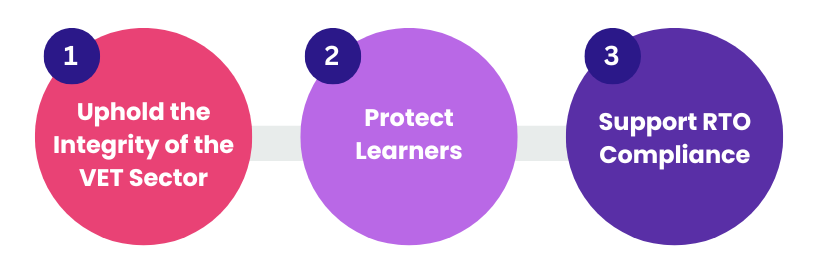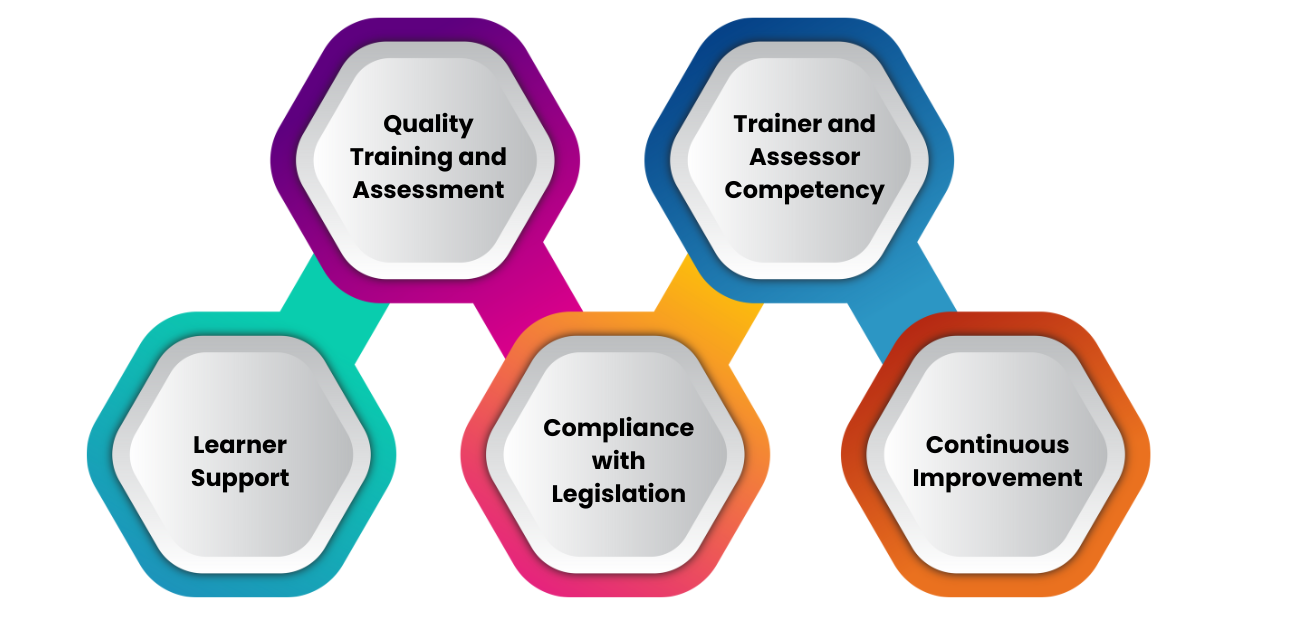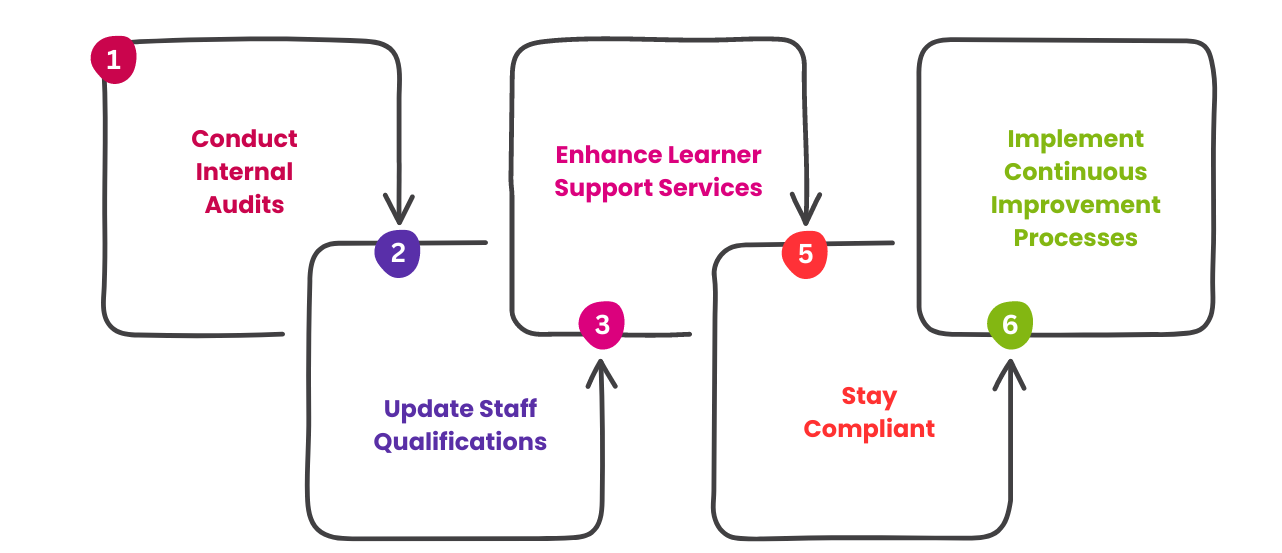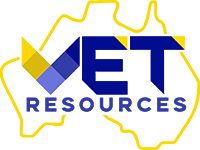✔️ Wondering how the draft revised standards for RTOs will impact your training delivery and assessments?
✔️ Ready to ensure your RTO meets the highest quality benchmarks?
✔️ Dive into our comprehensive guide to understand and implement the changes effectively, turning compliance challenges into opportunities for excellence.
Introduction:
Imagine your RTO as a ship navigating through the ever-changing seas of the vocational education and training (VET) sector. The waters can be choppy, with new RTO Standards regulations and standards continuously altering the landscape. To steer your ship safely and successfully, you need a clear understanding of the latest changes and how to adapt. Welcome to our in-depth blog series on the draft revised standards for (RTOs). In this series, we’ll guide you through these changes, starting with a detailed overview to set the stage.
Why the Draft Revised Standards Matter:
Think of the draft revised standards for RTOs as a new map for your journey. They are designed to enhance the quality of training and assessment practices, ensuring all RTOs provide industry-relevant and compliant education. These standards for RTOs 2015 are not just bureaucratic hurdles; they are essential tools that:

- Uphold the Integrity of the VET Sector: Ensuring that all training meets national quality standards.
- Protect Learners: Guaranteeing that learners receive training that is valuable, recognised, and aligned with their career goals.
- Support RTO Compliance: Helping RTOs navigate the regulatory landscape and maintain their registration.
Key Areas Covered by the Draft Revised Standards:

- Quality Training and Assessment:
- Ensuring that training and assessment strategies align with industry standards.
- Incorporating innovative and effective training methodologies.
- Trainer and Assessor Competency:
- Setting higher qualification requirements for trainers and assessors.
- Mandating ongoing professional development to keep staff updated with industry trends.
- Learner Support:
- Providing comprehensive support services to help learners succeed.
- Offering resources such as language, literacy, and numeracy support.
- Compliance with Legislation:
- Adhering to all relevant laws and regulations, including those set by the Australian Skills Quality Authority (ASQA).
- Continuous Improvement:
- Implementing robust processes for continuous improvement in training and assessment practices.
- Using feedback and data to drive improvements.
Detailed Breakdown of the Draft Revised Standards:
- Quality Training and Assessment:
- Your RTO must ensure that all training and assessment practices meet the requirements of the training packages and accredited courses.
- This includes developing and validating assessment tools and conducting regular reviews to maintain alignment with industry standards.
- Trainer and Assessor Competency:
- Trainers and assessors must now hold higher qualifications, including the TAE40116 Certificate IV in Training and Assessment or its successor.
- They must also engage in ongoing professional development to maintain their competency and stay current with industry practices.
- Learner Support:
- Your RTO is required to provide adequate support services to help learners transition into their training and achieve their learning goals.
- This includes orientation programs, academic support, and access to resources that address individual learner needs.
- Compliance with Legislation:
- Your RTO must comply with the Education Services for Overseas Students (ESOS) Act, the National Code of Practice for Providers of Education and Training to Overseas Students, and other relevant legislation.
- This ensures that the rights and welfare of learners are protected, and that your RTO operates within the legal framework.
- Continuous Improvement:
- Establish processes for continuous improvement, including regular audits, feedback mechanisms, and data analysis.
- This helps your RTO identify areas for improvement and implement changes to enhance the quality of training and assessment.
Practical Guide for RTOs:
To ensure your RTO meets the draft revised standards and thrives in the evolving VET landscape, follow these practical steps:

- Conduct Internal Audits: Regularly review your training and assessment practices to ensure they meet the draft revised standards.
- Update Staff Qualifications: Ensure all trainers and assessors meet the new qualification requirements and engage in professional development.
- Enhance Learner Support Services: Provide comprehensive support services to address the diverse needs of your learners.
- Stay Compliant: Keep up-to-date with the latest legislative requirements and ensure your RTO adheres to all relevant laws.
- Implement Continuous Improvement Processes: Use feedback and data to drive improvements in your training and assessment practices.
Looking Ahead: In our next blog, we will delve into the specific changes in the trainer and assessor competency requirements, as outlined in the draft revised standards. Understanding these changes is crucial for ensuring that your training staff are compliant and capable of delivering high-quality education RTO education.
Stay tuned for Blog 2: “Trainer and Assessor Competency – Key Updates and Requirements in the Draft Revised Standards”. We’ll provide practical tips and insights on how to meet these updated requirements.
For further information on the draft revised standards, visit the Department of Employment and Workplace Relations’ Quality Reforms page.
Disclaimer:
The information presented on the VET Resources blog is for general guidance only. While we strive for accuracy, we cannot guarantee the completeness or timeliness of the information. VET Resources is not responsible for any errors or omissions, or for the results obtained from the use of this information. Always consult a professional for advice tailored to your circumstances.






